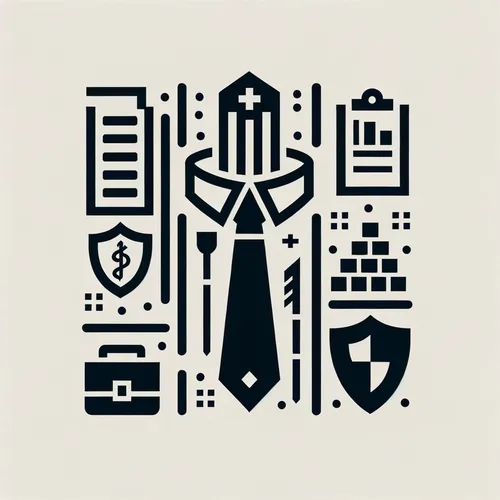Essential Coverages
- Author
- Quiet. Please
- Published
- Sat 18 Jan 2025
- Episode Link
- https://www.spreaker.com/episode/essential-coverages--63743410
Hey everyone, Jason here with another episode of Business Insurance 101. Today we're diving deep into what I consider the absolute essential insurance coverages that every business owner needs to understand. I've been in the insurance industry for over 15 years, and these are the fundamentals that I discuss with every client who walks through my door.
Let's start with General Liability insurance, often called GL. Think of this as your first line of defense against the most common risks your business faces. GL protects you from third-party claims of bodily injury, property damage, and even personal and advertising injury. Let me break that down with some real-world examples.
Say you own a small retail store, and a customer slips on a wet floor, breaking their arm. Or maybe you're a contractor, and one of your employees accidentally damages a client's property while working. These are exactly the types of situations where General Liability steps in. It covers medical expenses, legal defense costs, and any settlements or judgments if you're found liable.
But here's something many people don't realize about GL - it also covers things like reputational harm and advertising injuries. If your business accidentally uses someone else's logo or slogan in your marketing materials, or if an employee makes defamatory statements about a competitor, your GL policy would typically cover the resulting legal issues.
Now, let's move on to Property Insurance, which is absolutely crucial whether you own or lease your business space. Property insurance covers your physical assets - the building if you own it, your equipment, inventory, furniture, and even outdoor signs. But it's not just about protecting against obvious risks like fire or theft.
Many business owners I work with are surprised to learn that property insurance can also cover things like business interruption. Let's say a major storm damages your building, forcing you to close for repairs. Property insurance with business interruption coverage helps replace your lost income during that downtime and can even cover ongoing expenses like payroll and rent.
Here's a pro tip: when setting up property insurance, always consider replacement cost coverage rather than actual cash value. Replacement cost gives you enough to buy new items, while actual cash value only pays what your damaged items were worth after depreciation. The difference in premium is usually worth it.
Moving on to Professional Liability insurance, also known as Errors and Omissions or E&O. This is absolutely essential for any business providing services or advice. While General Liability covers physical injuries and property damage, Professional Liability protects against claims of financial loss due to your professional services.
Let me give you an example. Say you're an accountant who makes a mistake on a client's tax return, or an IT consultant who recommends software that ends up causing problems for your client's business. Professional Liability would cover your legal defense costs and any settlements, even if the claim is groundless.
One thing I always emphasize about Professional Liability is that it's claims-made coverage, meaning it only covers claims made while the policy is active. This is different from occurrence-based policies like General Liability, and it's crucial to understand this distinction when setting up your coverage.
Last but definitely not least, let's talk about Workers' Compensation insurance. In most states, this isn't just essential - it's legally required if you have employees. Workers' comp provides benefits to employees who suffer work-related injuries or illnesses, covering medical expenses, lost wages, and rehabilitation costs.
But workers' comp does more than just protect your employees - it protects your business too. By accepting workers' comp benefits, employees...
